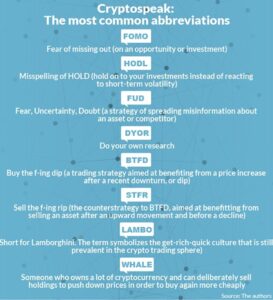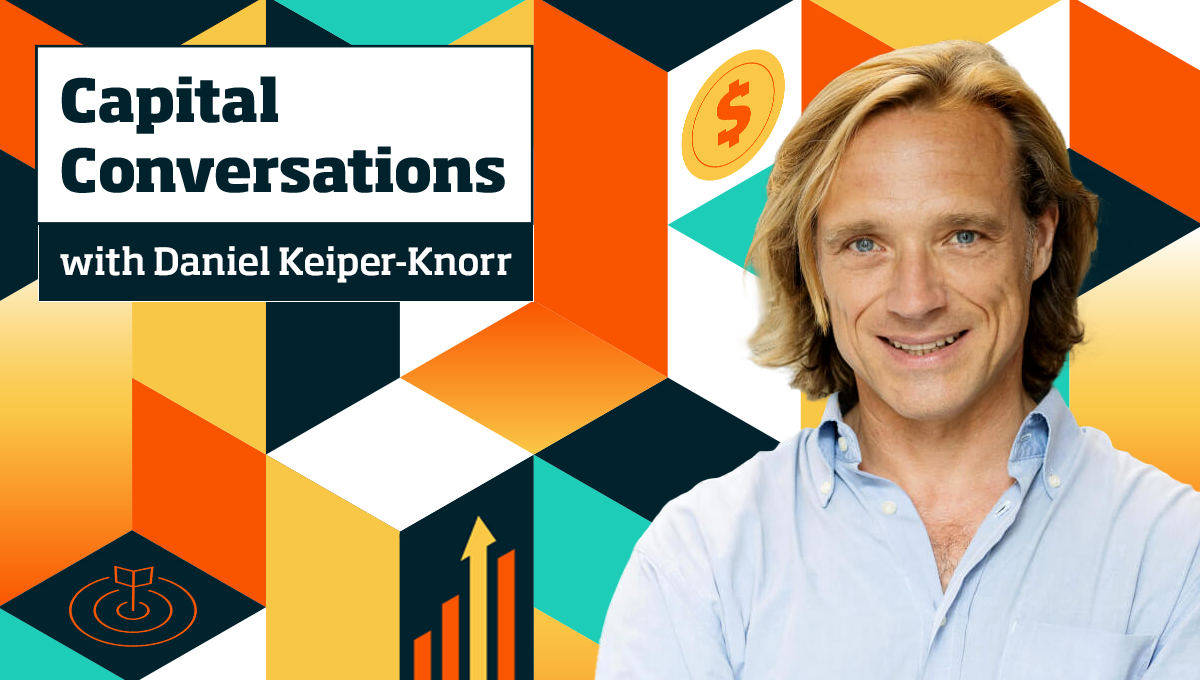
Eight simple investing rules you can borrow from cryptocurrency traders
Stop, drop & roll. Everybody knows what to do should they catch on fire.
By contrast, financial literacy is extremely low, and many people lack a basic understanding of financial management. A record number of people have accumulated a record level of debt. What are some simple rules of financial management we should follow?
Financial analysts claim it’s not so simple. Financial investments are inherently complex, and simple rules beyond “don’t put all your eggs in the same basket” directive are hard to come by.
However, some help can come from the unexpected realm of cryptocurrency trading.
In contrast to traditional financial instruments like stocks or bonds, trading in bitcoin and other cryptocurrencies trading attracts a much younger and digitally savvy crowd. They share lots of information, knowledge, and trading strategies on specialized online forums, most prominently on Reddit (see r/Bitcoin and r/CryptoCurrency). There you will most certainly encounter the use of several acronyms ubiquitous in the world of crypto.
Using these short and catchy abbreviations, cryptocurrency traders easily remember the most important rules of trading that — hopefully — help them to avoid costly mistakes. But non-crypto investors can learn and use them too.
Many of the underlying concepts have their origins outside the cryptocurrency world but have been borrowed and appropriated accordingly. For example, FOMO — the fear of missing out — was coined by Patrick J. McGinnis in a 2004 op-ed published in the Harvard Business School magazine The Harbus. In a trading context, it refers to the fear of missing out on high returns, triggered by recent, often drastic increases in the market value of an asset (think bitcoin or Ethereum).
Consequently, FOMO triggers newcomers to place large investments after course jumps, based on the inherently human cognitive bias to extrapolate the future from the past. Common trading wisdom, however, argues the opposite and generally advises to buy at the end or after a recent dip, or as another simple crypto-trading rule states: BTFD (buy the f-ing dip).
A common reddit thread occurs like this:
Question: Hey! Bitcoin has just gained 15% in price since yesterday, how long do you think it will continue? How much should I buy?
Answer: Relax, Bitcoin is very volatile and has these movements multiple times per month. Don’t let FOMO drive your investment decisions. My recommendation is to wait for the next downturn and BTFD!
Another great and simple rule is DYOR — do your own research. Some commentators describe the widespread cryptocurrency hype as the new Wild West. And just like the original Wild West, it attracts predatory or even fraudulent actors trying to entice naïve traders with promises of extraordinary returns if they only follow their investment strategy. Reddit contributors strongly caution DYOR — a rule to follow for traditional investments as well, as some recent cases of faulty advisory have shown.
Read: This Utah case is a lesson in why you shouldn’t let friends or family pick your financial adviser
In times of hyperconnectivity, information overload and never-ending FUD (fear, uncertainty, and doubt), such simple rules can help overcome cognitive biases and carefully evaluate investment opportunities. And while these acronyms are too simple to replace real financial educational and policy initiatives, they are easy and effortless to memorize and hard to misinterpret.
Read: Teaching people about money doesn’t seem to make them any smarter about money – here’s what might
Nikolaus Obwegeser is a researcher at the Global Center for Digital Business Transformation at the IMD business school and a joint initiative with Cisco. Remy Assir is operations manager and Tomoko Yokoi is a researcher, also at the Global Center for Digital Business Transformation.
This article was first published by MarketWatch
Research Information & Knowledge Hub for additional information on IMD publications
GENEVA (SWITZERLAND), AUGUST 2021. There was a lot at stake for Sébastien. This was the culmination of his 18-month NCA supported search journey to find a company to acquire. Instead of a single target, he was now faced with the prospect of acquir...
The idea of an EU bond, a common safe asset, has been gaining attention lately, particularly following calls for its introduction this month by former Italian prime minister Mario Draghi.
In addition to traditional venture capital (VC), governmental VC and social impact VC investors have emerged as alternatives to fund entrepreneurial ventures, especially start-ups that incorporate social and/or environmental objectives into commer...
The call by the former Italian prime minister and ECB president for massive investment in the EU is a wake-up call to Europe's economic stagnation. But can the continent afford the trade-offs it is overlooking?
Case reference: IMD-7-2515 ©2024
Research Information & Knowledge Hub for additional information on IMD publications
in I by IMD 8 November 2024
Research Information & Knowledge Hub for additional information on IMD publications
Research Information & Knowledge Hub for additional information on IMD publications
Research Information & Knowledge Hub for additional information on IMD publications
Research Information & Knowledge Hub for additional information on IMD publications
Research Information & Knowledge Hub for additional information on IMD publications
in Finance Research Letters October 2024, vol. 68, 105987, https://doi.org/10.1016/j.frl.2024.105987
Research Information & Knowledge Hub for additional information on IMD publications
Research Information & Knowledge Hub for additional information on IMD publications
Research Information & Knowledge Hub for additional information on IMD publications
in I by IMD 18 September 2024
Research Information & Knowledge Hub for additional information on IMD publications






